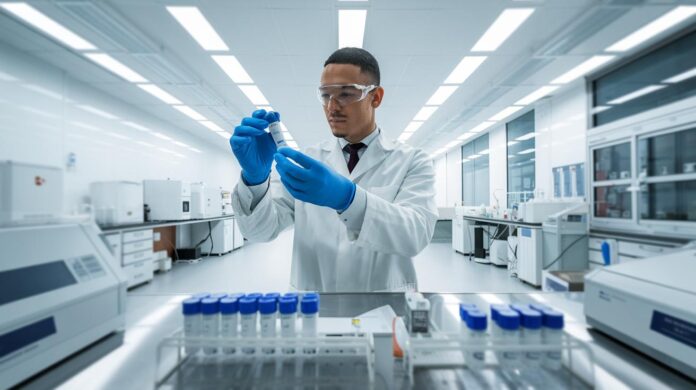Could a vaccine finally turn the tide in the relentless battle against herpes? Herpes Simplex Virus (HSV) infections pose significant public health challenges, affecting millions globally. Recent advances in herpes vaccine development signal a beacon of hope. Scientists are tackling HSV with both preventive and therapeutic strategies, progressing through various phases of clinical trials. This article delves into the key developments, focusing on the promise of candidates like Sanofi Pasteur's HSV529 and revolutionary mRNA technologies. Such innovations not only aim to prevent infection but also mitigate existing symptoms, paving the way for a healthier future.
Recent Advances in Herpes Vaccine Development
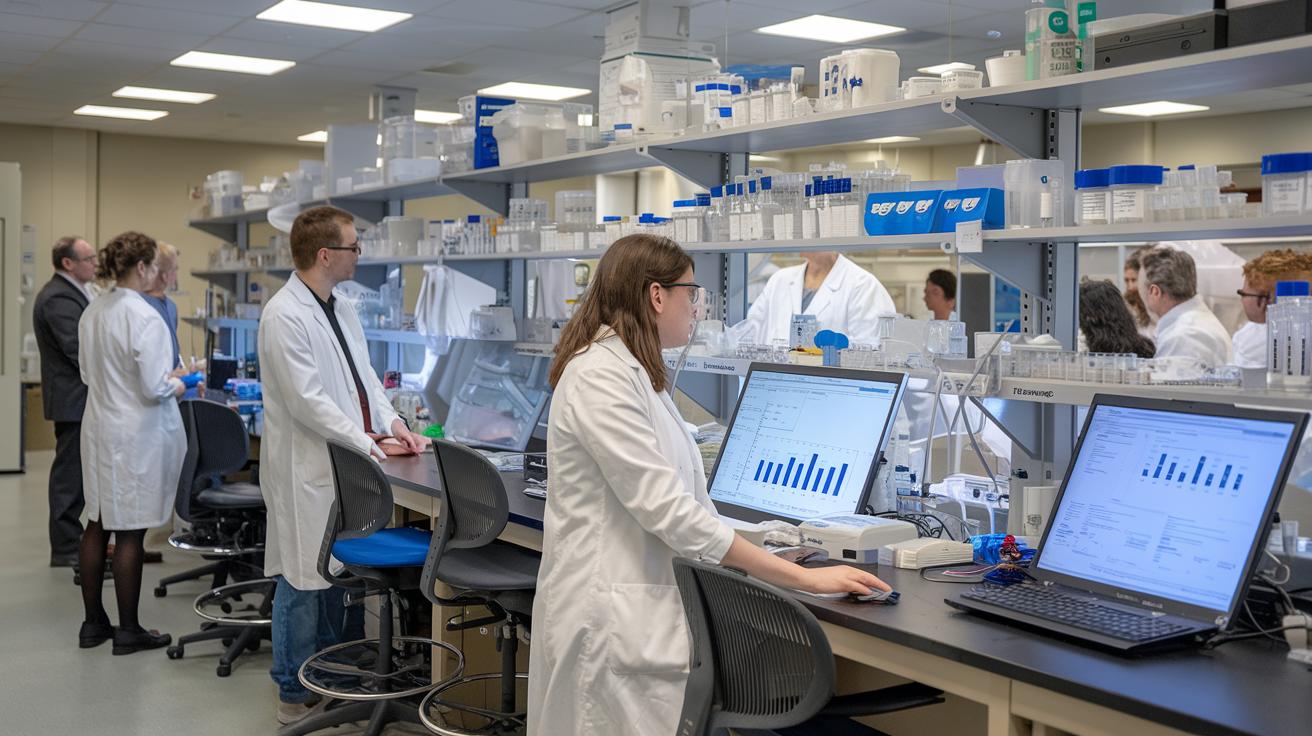
Herpes vaccine development has seen significant progress, focusing on both preventive and therapeutic strategies. These approaches aim to control herpes simplex virus (HSV) infections, particularly HSV-2, which is primarily responsible for genital herpes, while also addressing HSV-1, known for causing oral and, increasingly, genital infections.
Preventive vaccines are designed to stop the infection before it occurs, while therapeutic vaccines seek to reduce symptoms and transmission in individuals already infected. This dual strategy is vital for comprehensive herpes management, considering the virus's ability to establish latent infections and evade immune defenses.
Recent advancements include several promising vaccine candidates currently undergoing clinical trials or research phases. These candidates are at different stages of development, with some showing encouraging results in initial studies.
- HSV529 by Sanofi Pasteur – Phase I/II trials
- GEN-003 by Genocea Biosciences – Phase II trials (development halted)
- RVx201 by Rational Vaccines – Preclinical evaluation
- mRNA-based vaccines – Exploratory research
- Therapeutic vaccines – Research ongoing
These developments are of paramount importance as they address a significant public health need. HSV infections affect approximately 500 million people worldwide, with notable implications for sexual health and quality of life. The global scientific community's prioritization of herpes vaccine development underscores the substantial impact these vaccines could have, potentially reducing prevalence rates and easing the burden on healthcare systems worldwide.
Clinical Trials and Their Impact on Herpes Vaccine Progress

Clinical trials play an indispensable role in advancing herpes vaccine development. These trials are structured into multiple phases, beginning with small cohorts to assess initial safety and immunogenicity, followed by larger populations to evaluate efficacy and monitor adverse reactions. This systematic approach ensures that each candidate's potential benefits outweigh any risks, ultimately determining if a vaccine can be introduced to the market.
Phase I/II Trials: HSV529 by Sanofi Pasteur
HSV529, developed by Sanofi Pasteur, is a prominent candidate currently undergoing Phase I/II trials. The primary objective of these trials is to assess the vaccine’s safety and immunogenicity in humans. Initial results have been promising, indicating a robust immune response with a favorable safety profile. The trials are designed to further evaluate the vaccine's ability to prevent HSV-2 infections, which substantially contribute to the global burden of genital herpes. Successful completion of these trials could pave the way for larger-scale studies, potentially leading to a commercially available vaccine.
Preclinical and Phase I Trials: Fred Hutch Vaccine Efforts
The Fred Hutchinson Cancer Research Center is actively engaged in preclinical and Phase I trials, focusing on developing a herpes vaccine that addresses both HSV-1 and HSV-2. Their research aims to overcome the virus's ability to establish latency and evade immune detection. The expected outcomes of these trials include demonstrating the vaccine's efficacy in reducing viral shedding and transmission. The team's efforts are crucial in moving from preclinical evaluations to human trials, where safety and potential efficacy are thoroughly tested.
|Vaccine Candidate|Trial Phase|Expected Milestones|
|—————–|———–|——————-|
|HSV529 by Sanofi Pasteur|Phase I/II|Completion of safety and immunogenicity assessment|
|Fred Hutch Vaccine Efforts|Preclinical/Phase I|Initiation of human trials focusing on HSV-1 and HSV-2|
|RVx201 by Rational Vaccines|Preclinical|Advancement to Phase I trials for safety evaluation|
These ongoing trials signify critical steps in the pursuit of an effective herpes vaccine, potentially transforming the landscape of HSV prevention and contributing to global public health advancements.
Exploring mRNA Technology in Herpes Vaccine Research
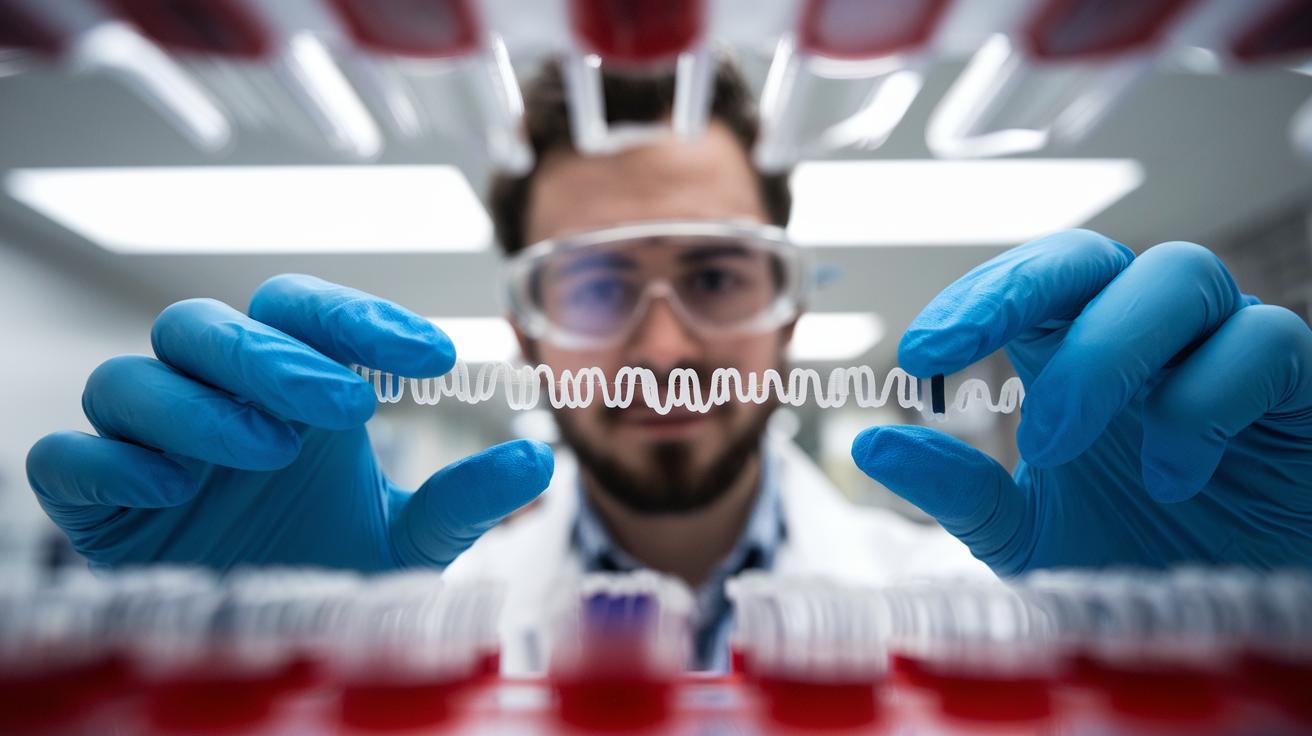
mRNA technology is revolutionizing the field of vaccine research, with significant potential for herpes simplex virus (HSV) prevention and treatment. This innovative approach, notably utilized in COVID-19 vaccines, is now being explored for HSV applications. Moderna, a leader in mRNA technology, is actively involved in trials aimed at developing a herpes vaccine using this method. The potential of mRNA vaccines lies in their ability to stimulate robust immune responses by instructing cells to produce proteins that mimic viral antigens, thereby triggering immunity. Given the technological success in previous vaccines, the application of mRNA for herpes marks a promising advancement in the fight against HSV.
The benefits of mRNA technology in vaccine development are substantial. Its rapid development and production timelines allow for quicker responses to emerging viral threats. The high efficacy potential, demonstrated effectively in other vaccines, suggests that similar success could be replicated with herpes. Moreover, mRNA vaccines are customizable, enabling precise targeting of specific viral antigens, which is crucial for addressing the distinct challenges posed by HSV-1 and HSV-2 infections. This adaptability enhances the prospect of creating vaccines that not only prevent infection but also mitigate symptoms and transmission.
- Rapid development and production timelines
- High efficacy potential demonstrated in other vaccines
- Customizable to target specific viral antigens
- Potential to address both HSV-1 and HSV-2
Challenges and Future Directions in Herpes Vaccine Development
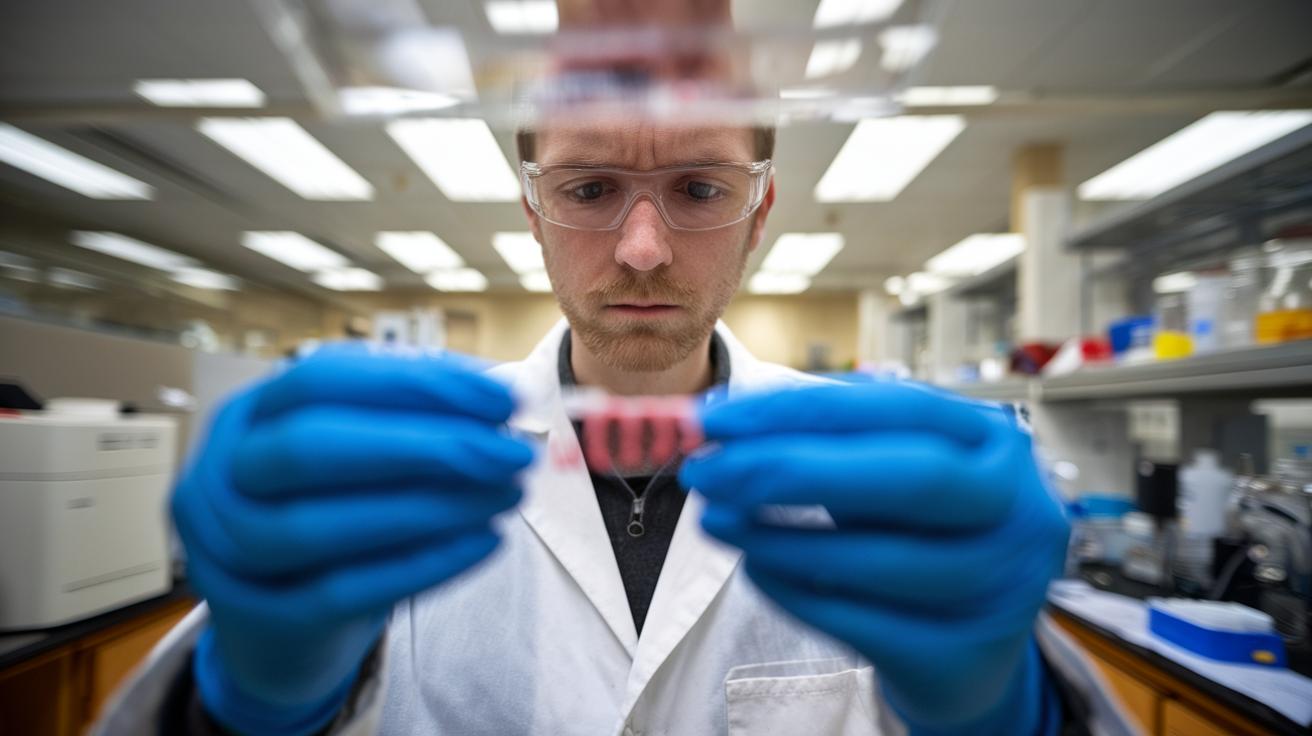
Herpes simplex virus (HSV) presents significant biological challenges in vaccine development due to its capacity to establish latent infections and evade the immune system. HSV can persist in nerve cells without active replication, which complicates the creation of vaccines that target the virus effectively. The virus's ability to hide within the host's cells and avoid immune detection further exacerbates the difficulty in eliciting a robust and lasting immune response. These challenges necessitate innovative approaches to design vaccines that can both prevent initial infections and manage latent ones.
Community support and advocacy play a pivotal role in advancing herpes research, underscoring the importance of public awareness and strategic efforts. Advocacy groups have been instrumental in elevating herpes as a public health priority, which has driven strategic planning at the National Institutes of Health (NIH) level. Such efforts have increased recognition of the research field, contributing to a more organized approach in tackling the complexities of HSV. Despite the lack of dedicated funding, these advocacy efforts have laid the groundwork for potential investments, highlighting the collective push for enhanced diagnostics, vaccine development, and treatment options.
Looking ahead, future strategies in herpes vaccine research focus on securing funding opportunities and fostering collaboration among scientists, healthcare providers, and policymakers. Given the global prevalence of HSV infections, there is a pressing need for coordinated efforts to accelerate progress. Collaborative initiatives could facilitate the sharing of data and resources, enabling the development of more effective vaccines. With the growing acknowledgment of herpes as a public health concern, optimism remains for future funding that will bolster research efforts and lead to breakthroughs in vaccine technology.
Evaluating the Effectiveness and Safety of Herpes Vaccines

Evaluating the effectiveness and safety of herpes vaccines is critical in determining their potential for widespread use. The complexity of herpes simplex virus (HSV), with its latent nature, poses significant challenges in demonstrating both safety and efficacy. These evaluations are essential to ensure that vaccine candidates not only provide adequate protection against infection but also maintain a favorable safety profile across diverse populations.
- Reduction in viral shedding
- Decrease in lesion rates
- Long-term immune response
- Safety profile in various demographics
The implications of these evaluations are profound for future vaccine availability. Demonstrating a reduction in viral shedding and lesion rates is crucial for establishing a vaccine's effectiveness in controlling HSV transmission and symptoms. Furthermore, ensuring a robust long-term immune response and a comprehensive safety profile across different demographics will facilitate regulatory approval and broader public acceptance. Successfully navigating these evaluations will pave the way for potential inclusion in national immunization programs, significantly impacting public health by reducing the prevalence of HSV infections worldwide.
The Role of Herpes Vaccines in Global Health
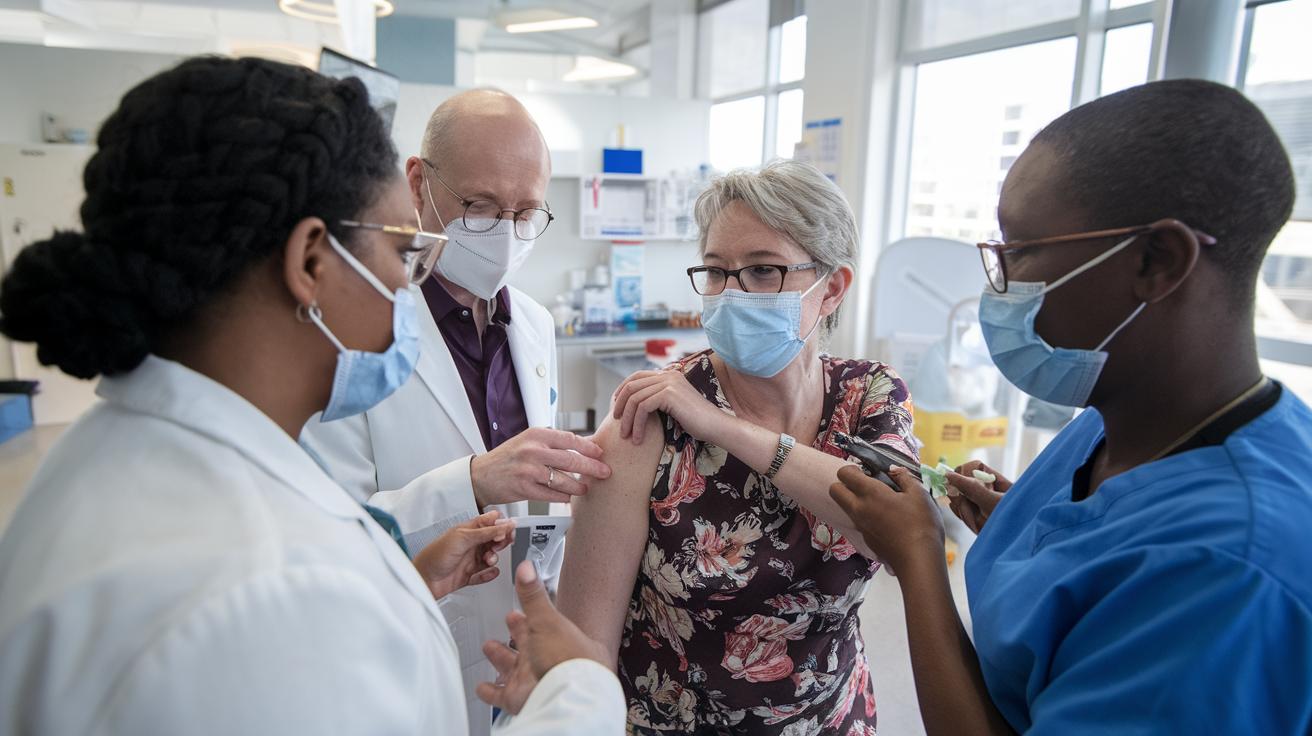
Herpes vaccines hold transformative potential for global health by significantly reducing the prevalence of herpes simplex virus (HSV) infections that affect approximately 500 million people worldwide. The implementation of effective vaccines could greatly alleviate the burden on public health systems, particularly in regions with high prevalence rates. Such vaccines would not only diminish the incidence of both HSV-1 and HSV-2 infections, thereby reducing transmission rates and improving quality of life, but also lower healthcare costs associated with managing chronic symptoms and complications. Equitable vaccine distribution is crucial to ensure that all populations, regardless of geographic or socioeconomic barriers, can access these life-changing interventions. Ensuring global access will help mitigate disparities in healthcare and enhance the overall effectiveness of vaccination programs, making profound public health advancements possible worldwide.
Final Words
Herpes vaccine development is advancing with several promising candidates, like HSV529 and mRNA-based technologies, showing potential in early trials. These efforts target both preventive and therapeutic needs, addressing HSV-1 and HSV-2 infections. Clinical trials play a pivotal role in determining the safety and efficacy of these vaccines, with global scientific collaboration driving progress.
Overcoming the biological challenges of HSV demands strategic approaches, community advocacy, and potential future funding. The implications of these advancements offer hope for reducing the global prevalence of HSV infections, promising a positive impact on public health worldwide. The continuous update on herpes vaccine efforts highlights significant strides in tackling this persistent health issue.
FAQ
When will the HSV-2 vaccine be available?
A: The availability of an HSV-2 vaccine remains uncertain. Several candidates, such as HSV529, are in clinical trials, and results are needed to determine their safety and efficacy before public availability.
How close are we to a cure for herpes?
A: While a cure for herpes is not imminent, there is significant progress in both therapeutic and preventive vaccines. However, achieving a complete cure remains challenging due to the virus's latent nature.
Is a herpes vaccine being worked on?
A: Yes, multiple herpes vaccine candidates are under development, such as HSV529, RVx201, and mRNA-based vaccines. These efforts are in various trial phases aiming to prevent or reduce HSV infections.
What is the Moderna herpes vaccine timeline?
A: Moderna is exploring mRNA technology for herpes vaccine development. While timelines are not yet definitive, the use of mRNA in other vaccines suggests potential for relatively rapid development.
What is the latest update on the BioNTech herpes vaccine?
A: BioNTech is investigating mRNA-based vaccines for herpes infection prevention. Progress updates will depend on clinical trial phases and results demonstrating safety and efficacy.
How far are we from having a herpes cure in 2024?
A: A cure in 2024 is unlikely, given the current progress in research and trials. Continued efforts in vaccine development and therapeutic strategies might offer partial solutions or symptomatic relief.
Are herpes vaccine trials ongoing?
A: Yes, several trials are ongoing, including HSV529 in Phase I/II. Researchers worldwide are prioritizing the development of both preventive and therapeutic vaccines to address HSV infections.
Will there ever be a cure for herpes?
A: While a complete cure poses challenges, ongoing research continues to develop vaccines and treatments that aim to reduce transmission and manage symptoms of herpes effectively.


